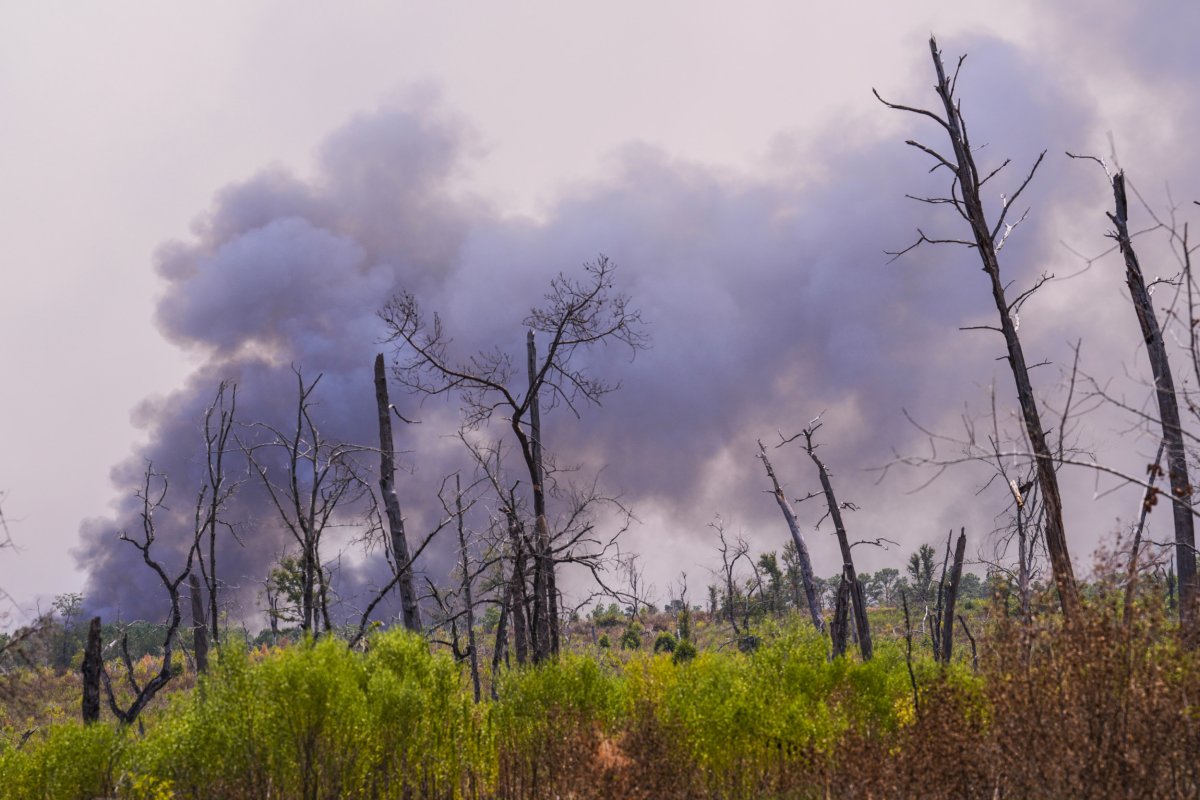
Millions of Americans have been urged to avoid driving and drive-thru lanes amid concerns over air pollution levels.
The National Weather Service (NWS) issued air quality alerts in Texas and Washington on Wednesday.
The warnings mean ground-level ozone and particulate concentrations are forecast to reach dangerous levels. In some areas, the pollution comes from drifting wildfire smoke.
Why It Matters
The NWS warned that the general public as well as sensitive groups—children, seniors and individuals with preexisting respiratory or heart conditions—might experience health effects linked to poor air quality in the affected regions.
“When air quality is unhealthy, everyone should reduce exposure. Limit time outside, avoid strenuous outdoor activity, and follow tips for cleaner indoor air,” the NWS said.

Brett Coomer/Houston Chronicle/AP
What To Know
In Texas, as Ozone Action Day has been issued on Wednesday for San Antonio, Austin, the Houston, Galveston and Brazoria area, and the Dallas-Fort Worth area.
“You can help prevent ozone pollution by sharing a ride, walking, riding a bicycle, taking your lunch to work, avoiding drive through lanes, conserving energy and keeping your vehicle properly tuned,” the The Texas Commission on Environmental Quality (TCEQ) said.
Drive‑thru lanes encourage prolonged idling, which increases motor vehicle emissions and ozone formation.
In Washington, an air quality alert has been issued in Chelan, Ferry, Pend Oreille, and Stevens counties until further notice due to wildfire smoke.
“Particulate matter (PM2.5) levels may reach unhealthy levels in areas closest to active fires and Unhealthy for Sensitive Groups elsewhere in the region,” Washington’s Department of Ecology said.
What People Are Saying
The TCEQ says on its website: “Ground-level ozone is of particular importance because it is a respiratory toxic agent that can cause acute respiratory health effects when people breathe high concentrations of it over several hours. These effects include decreased lung function and pain with deep breaths, and aggravated asthma symptoms.”
Jonathan Grigg, a professor of pediatric respiratory and environmental medicine at Queen Mary University of London, previously told Newsweek that there are “very clear links” between inhaling particles and earlier death from both respiratory and cardiovascular diseases.
He added: “There are vulnerable groups and classically they are children because they’ve got an extra issue to do with their lungs developing, whereas our lungs are not developing as adults.”
What Happens Next
The air quality warnings are set to remain in force throughout Wednesday.
Regular updates regarding air pollution levels are issued on the NWS website and on the Environmental Protection Agency’s AirNow interactive map.




